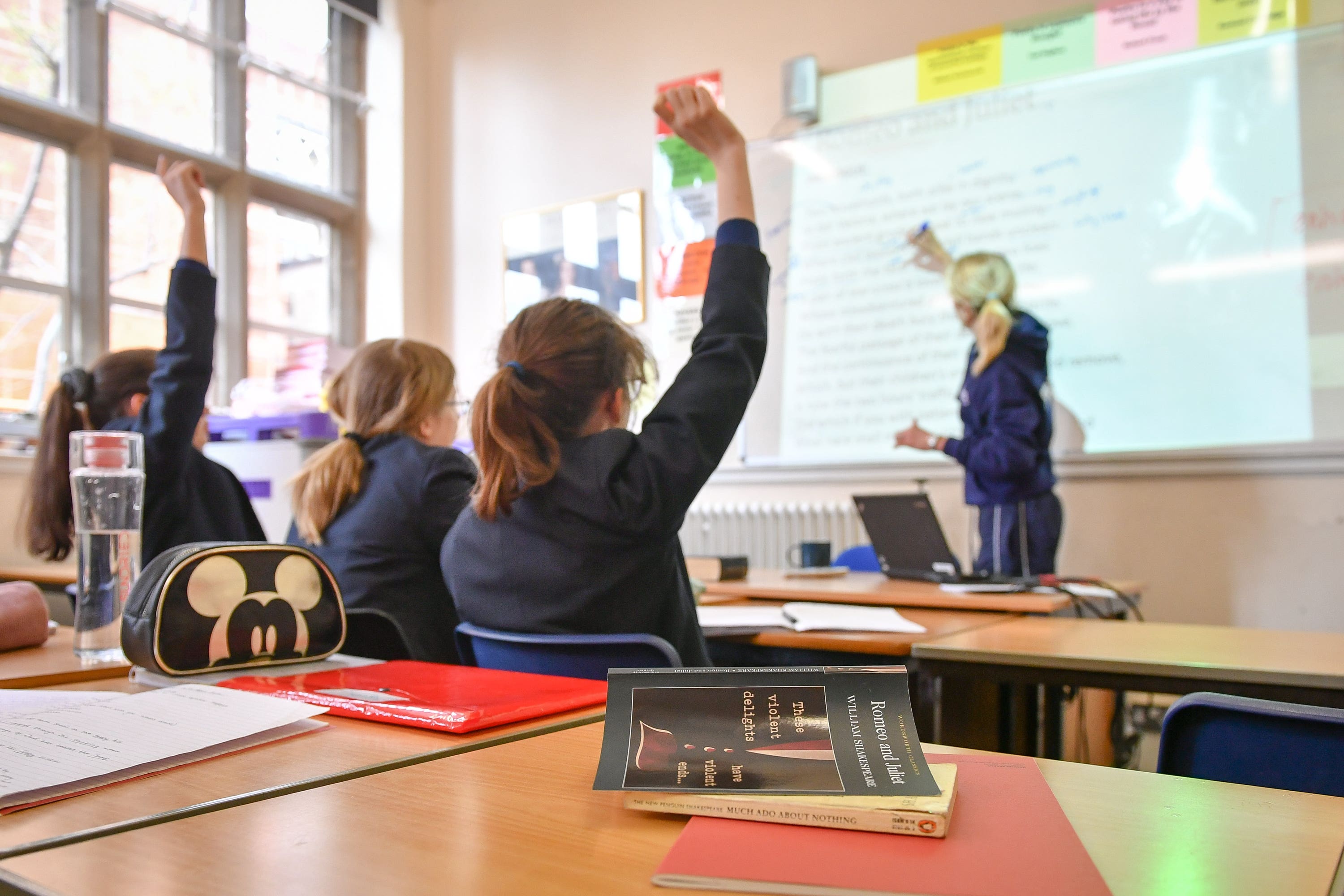Government should pay ‘premium’ for disadvantaged students over 16 – think tank
Research by the Education Policy Institute suggests disadvantaged students are 3.2 A-level grades behind their peers.

The Government should provide additional targeted funding for colleges and schools offering post-16 education to prevent disadvantaged students from falling further behind their peers, a report has suggested.
A new “student premium” for disadvantaged 16 to 19-year-olds should be brought in to address the “cliff-edge” in funding at the point pupils turn 16, think tank Education Policy Institute (EPI) has said.
The plea comes after previous research by the think tank suggested that economically disadvantaged students are 3.2 A-level grades behind their peers across their best three subjects.
The gap for persistently disadvantaged students – those who were in poverty for at least 80 per cent of their time in school – was even higher at almost four A-level grades, it showed.
There is no justification for the cliff edge in funding for disadvantage of almost £1,000 at the point students turn 16
Pupil premium funding, which aims to improve education outcomes for disadvantaged pupils, is currently offered to children up to the age of 16 in state schools in England.
The think tank has called on the new Labour Government to bring in a student premium for disadvantaged pupils in 16-19 education, which would cost about £340 million annually and help 28% of students in 16-19 education.
“Setting the student premium at least as high as the secondary school pupil premium (£1,035) would help address this cliff edge in the funding system at age 16,” the report said.
It added: “The sizeable attainment gap indicates that existing resources in 16-19 education are insufficient to overcome the additional challenges of supporting disadvantaged students, particularly against a backdrop of the further education sector having endured the biggest spending cuts of any education phase in recent years.”
The think tank has called for the student premium to be based on student-level and area-level measures of disadvantage.
The Department for Education (DfE) should consider a staggered roll-out of the student premium in order to evaluate its effectiveness, the report added.
Post-16 education has been persistently underfunded and it is disadvantaged students who suffer the most as a result of this
Emily Hunt, associate director for social mobility and vulnerable learners at the EPI, said: “With the gap between disadvantaged students and their peers at over three grades by the end of 16-19 education, urgent action is needed to prevent these young people from falling further behind their peers.
“There is no justification for the cliff edge in funding for disadvantage of almost £1,000 at the point students turn 16.
“Existing funding is insufficient to offset the educational challenges facing 16-19 disadvantaged students, particularly in the context of rising child poverty and the further education sector having seen the largest spending cuts of any education phase since 2010.”
She added: “The introduction of a student premium would end the disparity in funding for disadvantage as students transition from secondary school into 16-19 education, sharpen institutions’ focus on disadvantage and support evidence-based solutions to tackling the 16-19 disadvantage gap.”
Pepe Di’Iasio, general secretary of the Association of School and College Leaders (ASCL), said: “Post-16 education has been persistently underfunded and it is disadvantaged students who suffer the most as a result of this.
“It’s clear that schools and colleges need more funding and for this to be targeted in a way that makes it easier to support these students.”
He added: “Only by putting in place adequate support at every stage can we hope to close the disadvantage gap.”
A Department for Education (DfE) spokesperson said: “We recognise that too many young people are being held back by their background.
“That’s why we have committed to working with the sector to make sure that we can break down the barriers to opportunity.”
Bookmark popover
Removed from bookmarks